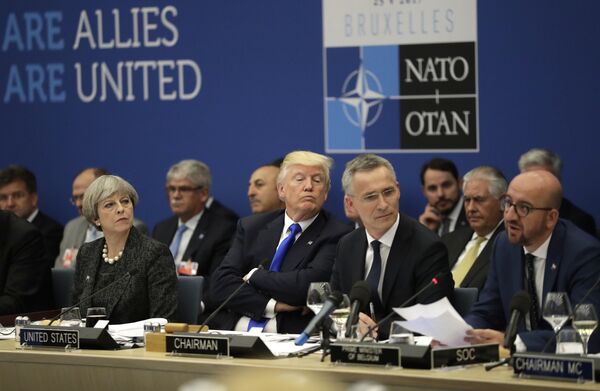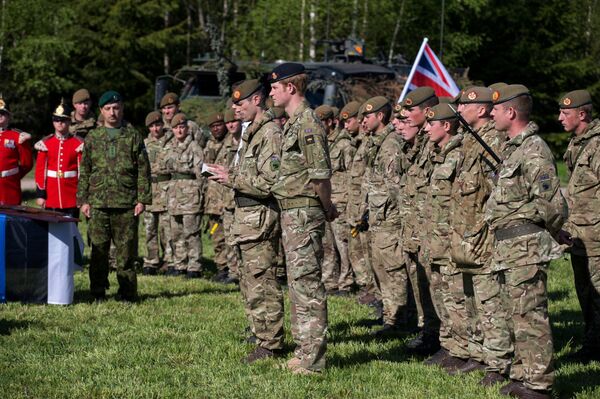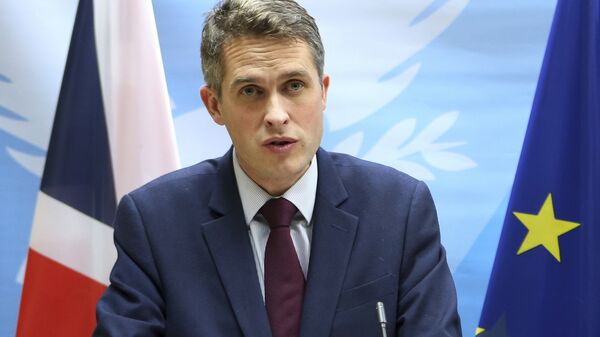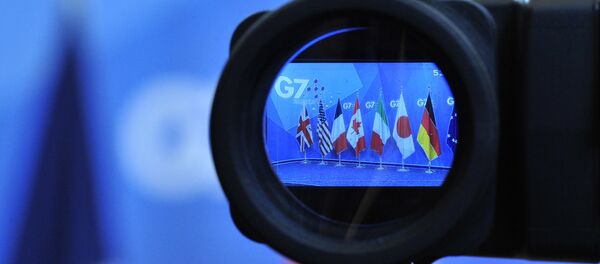The UK Defence Committee has heard on May 22 from the British Defense Minister Gavin Williamson. Commenting on UK's leadership role in NATO in the light of Britain leaving the European Union, Williamson told the committee:
"As we exit the European Union, I think it makes NATO even more important than it has been in the past. It is a connection of not just European nations but also North Atlantic nations. As a forum to build relationships, the significance is growing in terms of this organization, with our exit from the European Union."
We will be questioning Gavin Williamson MP, Secretary of State for Defence today at 2.30pm https://t.co/wtCIVBGFsa
— Defence Committee (@CommonsDefence) May 22, 2018
Williamson added that the UK can and should do more to be an influential member of NATO.
The two core things Britain would like to achieve is for NATO to have the right command structures and resources and for the members' to be spending the required minimum on defense, Williamson said. It will send a message to the potential aggressors that look to NATO countries, he added.
According to the Defense Expenditures of NATO Countries (2009-2016) report, only Poland, Estonia, the UK, Greece and the US have met the 2% target, with the rest of nations lagging behind.
READ MORE: It's Payback Time: How Trump Chided NATO 'Freeloaders'

The 2017 NATO summit in Brussels saw the US President Donald Trump call on the Alliance partners to "finally contribute their fair share and meet their financial obligations, for 23 of the 28 member nations are still not paying what they should be paying and what they're supposed to be paying for their defense."
"There is no better way of demonstrating commitment to collective security than making sure that 2% of GDP is actually being spent on defense," Williamson told the committee.
Being a member of NATO costs the UK 139 million pounds a year, the Defense Minister said, adding that it is "an exceptionally good value" in terms of what NATO can deliver.

Commenting on whether the UK will be spending more money on NATO if the threat level to the country was to increase, Williamson referred to "the changing threat environment."
"The threats are changing. We are facing the state-based aggressors. We have the additional threat of Russia that is resurgent and other nations are changing their approach and being more assertive around the globe. We see greater activity in the North Atlantic with the Russians. That's why it's been right to make investment in the Type-26 frigates, Poseidon anti-submarine aircraft and order additional Astute-class hunter killer submarines in HMS Agincourt."
Undivided Support
The mutual backing between the United Kingdom and NATO has been recently reaffirmed at the meeting of NATO Secretary General Jens Stoltenberg and UK Foreign Secretary Boris Johnson on March 18.
The British Foreign Office chief thanked the NATO leader for the "strong and undivided support" in the case of Sergei Skripal, a former Russian spy, who was poisoned in the UK earlier in March. In turn, Stoltenberg said that the Alliance has "been united in condemning this attack and offered support to the ongoing investigation," condoning UK's accusations against Russia.
Following the Salisbury events, London rushed to accuse Moscow of orchestrating the poisoning, while Russia has refuted all allegations and pointed to the complete lack of evidence to support such claims.
"#Russia will continue to seek to divide us. But #NATO Allies stand united. And we stand in solidarity with the #UK"- SG @jensstoltenberg pic.twitter.com/0PiOFpRO77
— Oana Lungescu (@NATOpress) March 19, 2018



